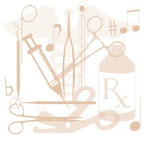Sunday, December 27, 2009
Cleveland Clinic researchers find music can have a soothing effect during brain surgery
Cleveland Clinic researchers find music can have a soothing effect during brain surgery
By Brie Zeltner, The Plain Dealer
December 01, 2009, 12:01AM
Lynn Ischay, The Plain DealerDr. Damir Janigro, left, a neuroscientist at the Cleveland Clinic, found that melodic passages of music seemed to calm patients when played while they remainied conscious during deep brain stimulation. With Janigro, in this picture from 2007, is Italian cellist Umberto Clerici. They are holding the 1769 Guadagnini cello that belonged to Janigro’s father, the great Italian cellist Antonio Janigro, which Clerici has on loan.
If you've ever come home after a long day and turned on, say, Brahms to relax, or jacked up the volume on Queen's "We Are the Champions" to get psyched for a workout, you know that music can change your mood.
Research on music and the brain has shown that it can reduce stress, alleviate pain and promote relaxation. And new research from the Cleveland Clinic shows that music can even reach into deep brain structures unrelated to hearing and memory to literally soothe nerves.
Patients receiving deep-brain-stimulation surgery for Parkinson's disease, essential tremor and several other conditions have to be awake for much of the surgery to tell surgeons if their symptoms improve when electrodes are placed deep in their brains.
"I witnessed several hundred brain surgeries with awake patients, and I noticed that these patients were going through a very traumatic experience, much worse than a root canal, for hours, and yet they were wide awake. So they need to be conscious, but no one said that they have to be upset or bored."
Damir Janigro, Cleveland Clinic neuroscientist
Neuroscientist Damir Janigro took advantage of this conscious period to play clips of music for the patients to see what effect it had on their brain function and on their stress levels during the surgery, which can be many hours long.
Janigro decided to play music for these patients after his own experience in a noisy operating room this year. While being prepped for spinal surgery, he thought of how dentists often give patients headphones to listen to music or a TV to watch to ease anxiety.
"The reason why they do it -- I asked my dentist -- is because [the procedure is] easier, and you go home faster," Janigro said.
Janigro presented his findings Oct. 30 at the Music and the Brain symposium in New York. Janigro is one of many specialists who work in the Clinic's Arts and Medicine Institute, which is studying how the arts can be used to enhance healing.
Dirk Hoch, 52, of Delphi, Ind., agreed to participate in the music study without hesitation. Hoch is a former postal worker who had to retire in 2005 due to essential tremor, a neurological condition that causes involuntary shaking, particularly evident during voluntary movements like holding a fork.
During the April surgery, Hoch listened to different music clips and told Janigro how he felt.
Like all the other participants, about a dozen in this initial study, Hoch preferred the melodic music clips to the others. Janigro also offered purely rhythmic music and a clip that combined rhythmic and melodic music.
To eliminate the possibility of any emotional associations with the music related to memory, Janigro had Gregory Bonanno of the Cleveland Institute of Music compose the clips.
Hoch said the music was a welcome distraction from the pain of the halo-like metal clamp that held his head in place during the surgery.
"You were at ease and at peace with the surroundings, which, given the circumstances, is something," he said. "I mean, after all, they're drilling holes in your head and inserting electrodes. It just really made a huge difference."
Janigro and his team could see that difference at work in Hoch's brain.
When he and the other patients listened to the rhythmic music or the clip that was both rhythmic and melodic, the overactive firing in their subthalamic and thalamic neurons didn't change. These are the areas of the brain that control the surface cortex and are particularly important in movement.
During the melodic music clips, the firing in these areas slowed down, and Hoch and the other patients felt calmer.
It wasn't exactly what Janigro expected.
"It's strange because these are motor sensors, so you would expect that boom, boom, boom would have more of an effect -- the rhythmic music."
The next step for Janigro and his colleagues will be to find out if melodic music in the operating room has any effect on stress measures, like the amount of the stress hormone cortisol circulating in the blood or the amount of blood-pressure medication needed during the procedure.
Ultimately, Janigro hopes the musical intervention will mean patients heal faster.
"I bet you that they will go home sooner," he said. "That's the goal, really. Happy people don't stay in the hospital."
Subscribe to:
Post Comments (Atom)







No comments:
Post a Comment